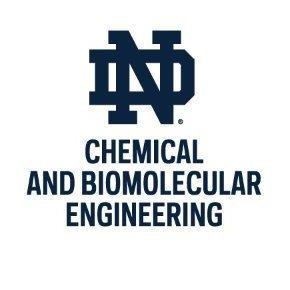Schedule#
Assignments#
Deadline |
Description |
|---|---|
TBD |
Class Meetings#
Date |
Topic |
Brief Description |
|---|---|---|
2025-08-26 |
Python review. |
Fundamental objects and syntax. Common packages. |
2025-08-28 |
Basic definitions in linear algebra: vectors, matrices, determinant, inner product |
Core objects and operations in linear algebra; norms and orthogonality; geometric interpretations. Conditioning and why it matters in computation. |
2025-09-02 |
Gaussian elimination & solving linear systems |
Elimination, back‑substitution, and residual/error checks. Numerical stability, pivoting idea (preview), and interpreting solutions in |
2025-09-04 |
LU (partial pivoting) & Cholesky |
Stable factorization for general matrices ( |
2025-09-09 |
Matrix spaces: column space, null space |
Rank, independence, and the structure of solution sets. Interpreting tall systems and consistency via column space; null space as degrees of freedom. |
2025-09-11 |
Row space, orthogonal complements, bases, Gram–Schmidt |
Building orthonormal bases; geometry of orthogonal complements. Modified Gram–Schmidt and the link to QR for stable projections. |
2025-09-16 |
Rank‑deficient problems: tall |
Least‑squares formulation; normal equations vs. QR/SVD solutions. Regularization preview and diagnostics for ill‑conditioning. |
2025-09-18 |
Eigendecomposition, matrix functions & orthogonal matrices |
Spectral theorem, diagonalization, and matrix functions (polynomials, exponential). Orthogonal matrices and stability. |
2025-09-23 |
SVD & underdetermined problems: wide |
SVD for pseudoinverses, minimal‑norm solutions, and low‑rank structure. Connections to compression, noise filtering, and constrained degrees of freedom. |
2025-09-25 |
Positive definite matrices & applications |
Quadratic forms, PD/PSD tests, and energy/convexity interpretations. Why PD matters in optimization, estimation, and numerical stability. |
2025-09-30 |
Probability & random vectors: expectation, covariance, PSD |
Random vectors, moments, and covariance as a PSD operator. Linear transformations, sample vs. population quantities, and empirical estimation. |
2025-10-02 |
In‑class exam #1 (Linear Algebra) |
Cumulative in‑class assessment covering the linear algebra module. |
2025-10-07 |
Common distributions; linear transformations |
Gaussian and exponential family basics; multivariate normal geometry. Transformations of random vectors and propagation of mean/covariance. |
2025-10-09 |
Change of variables, Jacobians, uncertainty propagation |
Jacobians and volume scaling; practical change‑of‑variables examples. First‑order and Monte‑Carlo uncertainty propagation in models. |
2025-10-14 |
Maximum entropy & chemical‑engineering applications |
Entropy as uncertainty; deriving distributions from constraints (maxent → exponential family). Links to statistical thermodynamics and prior modeling. |
2025-10-16 |
Estimation theory: moments, MLE, Fisher information |
Principles of parameter estimation; identifiability and variance bounds (Cramér–Rao). Using information matrices to reason about parameter precision. |
2025-10-21 |
No class |
Fall Break. |
2025-10-23 |
No class |
Fall Break. |
2025-10-28 |
Hypothesis testing: LRTs, confidence ellipsoids |
Likelihood‑based tests; interpreting p‑values and power. Multivariate confidence regions (ellipsoids) and Hotelling’s T² perspective. |
2025-10-30 |
Bayesian inference: conjugacy, Maximum a Posteriori (MAP), updating |
Prior → posterior mechanics for common models; MAP as regularization. Predictive distributions and sequential updating. |
2025-11-04 |
Statistics capstone (incl. experimental design) |
End‑to‑end inference on a chemical‑engineering case: objectives, efficient designs (D/A/E‑optimality), data collection/analysis, and communicating uncertainty. |
2025-11-06 |
In‑class exam #2 (Statistics) |
Cumulative in‑class assessment covering the statistics module. |
2025-11-11 |
Generalized linear models (GLMs) & model assessment; Akaike and Bayesian Information Criteria (AIC/BIC) & CV |
Link functions, deviance, and when GLMs are appropriate. Model comparison and validation under realistic data conditions. Heteroscedastic/Homoscedastic. |
2025-11-13 |
Classification overview; Receiver Operator Characteristic (ROC) & precision–recall |
Linear Discriminant Analysis (LDA), logistic classifier, SVM concepts. Evaluation under imbalance with ROC/PR and calibration. |
2025-11-18 |
Newton–Raphson & quasi‑Newton for nonlinear equations |
Root‑finding for vector systems; Jacobians/Hessians, line search vs. trust‑region ideas. Convergence behavior and practical safeguards. |
2025-11-20 |
Nonlinear least squares: Gauss–Newton & Levenberg–Marquardt |
Parameter estimation for nonlinear models; weighting, scaling, and robust losses. Implementation details that affect convergence. |
2025-11-25 |
Constrained optimization: Lagrange multipliers & KKT |
Equality/inequality constraints; optimality conditions and sensitivities. Brief look at QPs and engineering design constraints. (May opt for global optimization: genetic algorithms/particle swarm optimization instead). |
2025-11-27 |
Thanksgiving Break — no class |
No meeting (university holiday). |
2025-12-02 |
MAP estimation & Bayesian nonlinear models (MCMC overview) |
Priors as regularization in nonlinear settings; Laplace approximation intuition. Overview of MCMC (Metropolis–Hastings/HMC). |
2025-12-04 |
Gaussian process regression & surrogate modeling |
Nonparametric regression with kernels; posterior mean/variance and hyperparameter learning. Emulation of expensive ODE/PDE models for design and UQ. |
2025-12-09 |
Capstone integration: parameter estimation + UQ |
Full pipeline: model specification → estimation (deterministic/Bayesian) → validation → uncertainty propagation/sensitivity → decision support. Emphasis on reproducible computation. |
